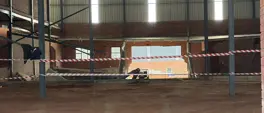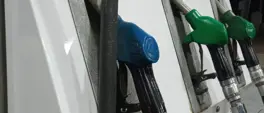SA's corporates sitting on a record R1.8 TRILLION in cash, choosing not to invest it
Paula Luckhoff
14 October 2025 | 17:25We speak to two experts, after the Reserve Bank reveals the latest figures and says there is a readiness to invest when economic confidence rises.

Picture: Pixabay.com
Corporate South Africa is right now sitting on a record amount of excess cash.
The country's non-financial companies (NFCs) held R1.8 trillion in their bank accounts as of July 2025, according to the September edition of the Quarterly Bulletin from the South African Reserve Bank (SARB).
This trend began after the pandemic hit in 2020 and companies boosted their deposits by R166.9 billion.
In 2024, they added another R186.1 billion ‒ the biggest annual increase yet.
While some of this growth was thanks to inflation, much of it signalled cautious spending amid low economic growth, the SARB says.
The continued rise in deposits shows that companies are not merely stockpiling cash - they are responding to economic conditions and balancing risk with readiness to invest when confidence returns, according to the central bank.
Stephen Grootes gets input from Kevin Lings, chief economist at Stanlib Asset Management, and Lumkile Mondi, lecturer at Wits University's School of Economics and Business Science.
It is as simple as saying that companies don't have confidence in our economy, Lings says, agreeing with the SARB's explanation.
"If you look at a range of indicators, they all are pointing to the same things - so it's not just that companies are sitting on a fair amount of cash; it's also got to do with how leveraged their balance sheet is."
RELATED:
- Business confidence in SA drops further in 3rd quarter of 2025 - Index
- ANC's new economic action plan 'unlikely' to inspire confidence in investors - CDE
Lings also highlights the level of indebtedness of private companies, compared to the much higher level at parastatals like Transnet and Eskom.
Looking at the total debt of South Africa's corporate sector, total debt is 31% of GDP, which includes actually the debt of government-owned entities.
If you take away the latter, the figure would fall well into the 20% he says, while government sits well over 70%.
"You could say then, that certainly big corporates have very little debt or they haven't really leveraged the balance sheet. While sitting on a decent amount of cash they're being very conservative and they ARE waiting for opportunities."
Lings also interprets this scenario in a positive way - what's happening is NOT a case of companies that are desperately in debt with no cash, which would be a terrible message about South Africa.
Neither are they investing increasingly offshore, in other words disinvesting from SA, which would also be bad news.
"Instead, corporates are sitting on solid balance sheets, they've got decent management and they're waiting for opportunities."
Like Lings, Lumkile Mondi highlights the disintegration of the country's infrastructure as one reason why companies are choosing not to expand at this point.
He also cites a lack of a definite developmental agenda given we have a government of national unity, along with geopolitics and geoeconmics really pushing firms to hold on to their cash.
To listen to the full conversation with Stephen Grootes on 702's The Money Show, click on the audio link below:
Get the whole picture 💡
Take a look at the topic timeline for all related articles.

















